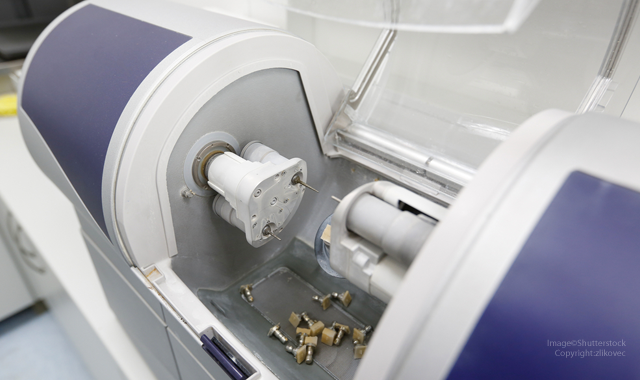Why the National Association of Dental Laboratories advocates partnering with a certified professional
Working with a certified dental technician could help ensure patient safety.

No state in the U.S. requires a dental technician to be licensed and only four states require certification of at least one dental technician in the laboratory (Texas, South Carolina and Kentucky) or continuing education (Florida) for a laboratory to operate in that state. All other states have no minimum qualifications for someone to work as a dental technician.
To ensure standards are met and patients receive quality care, the National Association of Dental Laboratories (NADL) advocates for dentists to partner with certified dental laboratories and technicians.
The National Board for Certification in Dental Laboratory Technology (NBC), an independent organization, administers two programs – the Certified Dental Technician (CDT) and the Certified Dental Laboratory (CDL) credentials. Additionally, the National Association of Dental Laboratories administers the Dental Appliance Manufacturers Audit System (DAMAS) designation.
The CDT credential is the only certification program for dental technicians recognized by the American Dental Association. The CDT designation illustrates a technician's commitment to the field of dental laboratory technology and demonstrates their knowledge and skill in one of six specialty areas: ceramics, complete dentures, crown and bridge, orthodontics, partial dentures and implants. CDTs are also required to earn a minimum of 12 hours of continuing education each year to maintain their designation.

The CDL certification requires stringent infection control, personnel training, equipment, facility and case management standards with a Certified Dental Technician involved in upholding the technical quality in the laboratory. The CDL is recognized by the National Association of Dental Laboratories (NADL), the American Dental Association (ADA) and the American College of Prosthodontists (ACP). It also receives outstanding support and participation from U.S. military services.
The standards required to be a DAMAS dental laboratory closely mirror the U.S. Food and Drug Administration’s Quality System/Good Manufacturing Practice (QS/GMP) specifications and provide a clear-cut process for improving documentation of laboratory operations including: dental prescriptions/work authorizations; patient contact materials; subcontractor/supplier agreements; material and equipment purchases; employee training; maintenance and calibration of equipment; labeling; customer complaints; and material traceability.
“When you partner with a CDT, CDL or DAMAS lab, you are working with professionals who have a desire to be an industry leader and are dedicated to compliance with documented standards,” says Heather Voss, CDT, former Chair of the National Board for Certification in Dental Laboratory Technology and a member of the NADL Board of Directors.
Standards provide assurance of safety, predictability and functionality. Working with certified professionals ensures dentists and patients can be confident the services provided and the materials and processes used to fabricate dental restorations meet or exceed industry guidelines and regulations.
Throughout the month of June, NADL and NBC will be using their Facebook pages to recognize CDTs for their commitment to the industry. Share your experience partnering with a CDT or as a CDT in this brief survey: http://nadl.org?0d0big.
Oral Health Pavilion at HLTH 2024 Highlighted Links Between Dental and General Health
November 4th 2024At HLTH 2024, CareQuest, Colgate-Palmolive, Henry Schein, and PDS Health launched an Oral Health Pavilion to showcase how integrating oral and general health can improve patient outcomes and reduce costs.
Episode 31: Dentsply Sirona Implant Announcements
September 30th 2021DPR’s Editorial Director Noah Levine sat down with Gene Dorff, Dentsply Sirona’s group vice president of implants and Dr. Dan Butterman to review several big announcements the company made in the arena of implants during Dentsply Sirona World 2021 in Las Vegas.